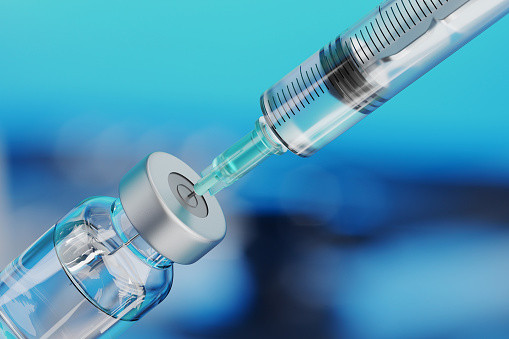Aspen Pharmacare Secures $30 Million Grant For Vaccine Manufacturing

Aspen Pharmacare (APN.JO) said Monday that it will receive $30 million (R523 million) from the Coalition for Epidemic Preparedness Innovations (CEPI) and the Bill & Melinda Gates Foundation to support the manufacturing of vaccines for Africa.
The Gates Foundation and CEPI have each pledged $15 million in funding to support Aspen and Serum Institute of India's 10-year agreement.
Aspen has announced that it will receive USD30 million from the @gatesfoundation and the @CEPI to support its capabilities to manufacture lifesaving routine and outbreak vaccines in Africa for Africa. https://t.co/92aBCAiJ6w
— Aspen Pharma (@aspenpharma) December 12, 2022
"We thank both CEPI and the Gates Foundation for their commitment to support regional manufacture for Africa. Their commitment, together with our partnership with Serum, is an important first step in ensuring expanded and enduring equitable access to a pipeline of medicines and vaccines manufactured in Africa for Africans," Aspen CEO Stephen Saad said in a statement on Monday.
"Aspen has a proven capability of being at the forefront of pandemic preparedness for the continent - from ARVs to Covid vaccines. This support will ensure we can continue to invest and expand our capacities, secure in the knowledge of future offtakes," the company said.
The pharmaceutical company, through a partnership with the Serum Institute of India, will manufacture and distribute pneumococcal, rotavirus, polyvalent meningococcal, and hexavalent vaccines in the region.
Aspen said that the additional funding will help not only support the "technology transfer activities" set to begin early in 2023, but also help maintain its regional vaccine-making capacity against future outbreaks.
In March, the company signed a contract with Johnson & Johnson to manufacture and sell Aspen-branded Covid-19 vaccines, Aspenovax, throughout Africa. It also packaged and filled vials of the U.S. company's vaccines at its plant in Gqeberha.
Meanwhile, Health Minister Joe Phaahla has announced that children with chronic diseases like respiratory, heart, neurological, kidney, liver, and gastrointestinal conditions, also, those with certain endocrine disorders, conditions associated with immunosuppression, and serious genetic abnormalities will be vaccinated with two doses of the Pfizer vaccine, starting 2023, with an interval of 21 days.
Phaahla further said that South Africa had already administered 38 million COVID-19 vaccines. "Although the number of COVID-19 cases is low, sub-variants of Omicron continue to be detected. We urge everyone to get vaccinated to protect themselves and their loved ones," he added.
© Copyright 2026 IBTimes ZA. All rights reserved.




















